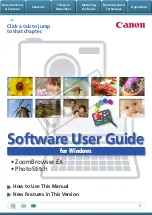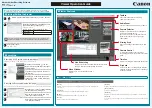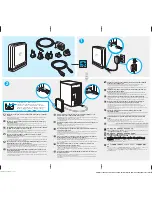
RUGGEDCOM
Application Note
Chapter 4
Using Scripts to Create SSL Certificates
Scenario 1: The Machine Hosting the Scripts Becomes
the Root CA
7
Using Scripts to Create SSL
Certificates
The scripts provided by Ruggedcom can be used in three different infrastructure scenarios.
•
Section 4.1, “Scenario 1: The Machine Hosting the Scripts Becomes the Root CA”
•
Section 4.2, “Scenario 2: The CA Resides Elsewhere”
•
Section 4.3, “Scenario 3: Self-Signed Device Certificates”
Section 4.1
Scenario 1: The Machine Hosting the Scripts
Becomes the Root CA
In the first scenario, the machine that hosts the scripts is the Root CA and it directly issues keys and certificates
for the ROS and ROX devices. In this case the certificate requests generated for each device will be signed by
the Root CA, which is also generated on the same machine hosting the scripts.
NOTE
The Root CA’s certificate and private key will also be created and need to be protected after issuing the
certificates.
Summary of Contents for ROS
Page 4: ...Table of Contents RUGGEDCOM Application Note iv ...
Page 6: ...RUGGEDCOM Application Note Chapter 1 Introduction 2 ...
Page 8: ...RUGGEDCOM Application Note Chapter 2 Installing OpenSSL on Windows 4 ...
Page 10: ...RUGGEDCOM Application Note Chapter 3 Installing the Scripts 6 ...
Page 20: ...RUGGEDCOM Application Note Chapter 5 Using the Scripts to Create SSH Keys for ROS 16 ...
Page 32: ...RUGGEDCOM Application Note Chapter 9 Frequently Asked Questions FAQs 28 ...












































